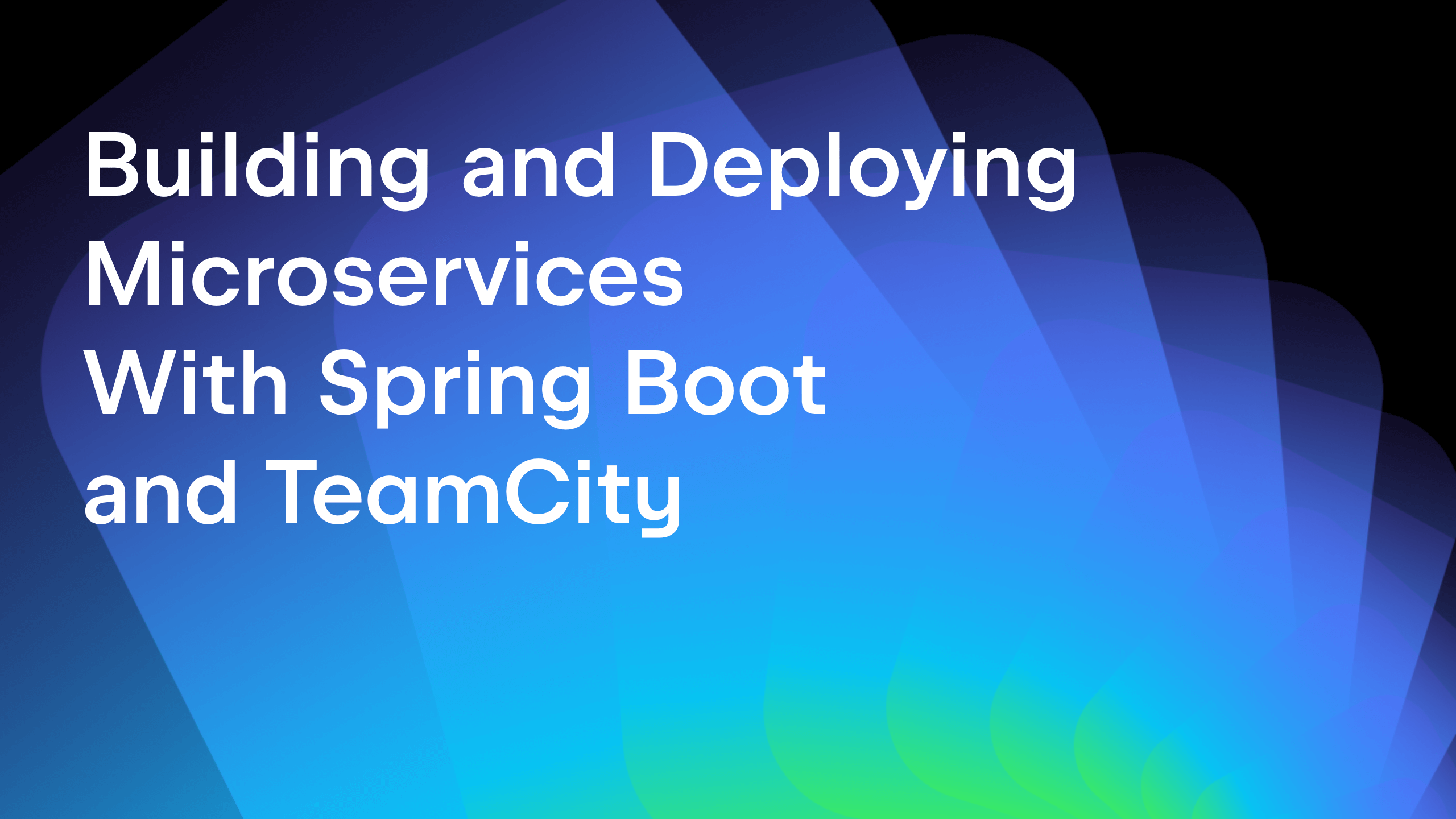TeamCity
Powerful CI/CD for DevOps-centric teams
Test .NET Core projects with TeamCity
Greetings, everyone!
As many of you already know, TeamCity has a plugin to build .Net Core projects, which is basically a wrapper for the dotnet command. But if you try running dotnet test, you won’t see test results in TeamCity at the moment. As the test time can be significant, it is preferable to have fast feedback, so in this post we’ll explain how to integrate the dotnet test command with TeamCity and configure on-the-fly test reporting.
In short, you’ll need to perform the following:
- To run tests locally using the
dotnet testcommand, add references to the following packages to your test project: to Microsoft.NET.Test.Sdk, to the test framework, and the test adapter. - To configure on-the-fly reporting, add a package reference to the TeamCity VSTest Adapter.
- To configure a build in TeamCity, use the TeamCity plugin for .NET Core projects or some other build runner.
Let’s go over these points in detail.
Run tests locally using dotnet test command
The approach suggested by Microsoft works fine for any target framework as well as for multiple frameworks at the same time, provided the test engine has a test adapter, e.g. MS tests, xunit tests, or some other test engine, for example.
That means that a test project needs to have at least three additional package references:
- Microsoft.NET.Test.Sdk, which contains the MSBuild targets and properties for test projects and marks a project as a test project.
- The selected Test Framework, e.g. MSTest, or XUnit, or other
- Test Adapter to discover and execute test framework based tests, e.g. the MSTest adapter, or the XUnit adapter, or other.
Configure on-the-fly reporting in TeamCity
Ideally, you should not need to do any additional preparation steps if you choose to run dotnet tests on TeamCity: TeamCity should pick up these tests automatically. For now this is not the case, so here is how you still can achieve this goal: use the TeamCity.VSTest.TestAdapter NuGet package containing a special logger which integrates with the test platform and sends service messages to a TeamCity server.
To turn on the integration, you’ll have to add a package reference to TeamCity VSTest Adapter. Note that this package does not impact the tests run locally, but only those run under TeamCity.
Here is an example of a project:

The project file for an MS test project can look as follows:
[sourcecode language=”xml”]
<Project Sdk="Microsoft.NET.Sdk">
<PropertyGroup>
<TargetFrameworks>net45;netcoreapp1.0</TargetFrameworks>
</PropertyGroup>
<ItemGroup>
<PackageReference Include="Microsoft.NET.Test.Sdk" Version="15.0.0" />
<PackageReference Include="MSTest.TestAdapter" Version="1.1.14" />
<PackageReference Include="MSTest.TestFramework" Version="1.1.14" />
<PackageReference Include="TeamCity.VSTest.TestAdapter" Version="1.0.0" />
</ItemGroup>
<ItemGroup>
<Service Include="{82a7f48d-3b50-4b1e-b82e-3ada8210c358}" />
</ItemGroup>
</Project>
[/sourcecode]
Configure build in TeamCity
To configure a build project in TeamCity, we used the TeamCity plugin for .NET Core projects, described here in detail.
You can see an example on the public TeamCity server, where a test project contains one class, UnitTests:
[sourcecode language=”csharp”]
namespace MS.Tests
{
using System;
using Microsoft.VisualStudio.TestTools.UnitTesting;
[TestClass]
public class UnitTests
{
[TestMethod, Ignore]
public void TestIgnored()
{
}
[TestMethod]
public void TestPassed()
{
Console.WriteLine("some text");
}
}
}
[/sourcecode]
Here is an example of the TeamCity tests step:
 .
.
After a build is run, TeamCity shows the test results:

This .Net project has two target platforms, net45 and netcoreapp1.0, that is why each test is run for both framework and you can see several results per test.
The proposed approach does require some extra effort, however, it is quite viable and useful for testing .Net Core projects. Currently we are working on simplifying running tests and configuring on-the-fly test reporting from TeamCity, which would not require modifying your project files, so stay tuned for the latest news.
As usual, feel free to share your feedback.
Happy building and testing!
Subscribe to TeamCity Blog updates






